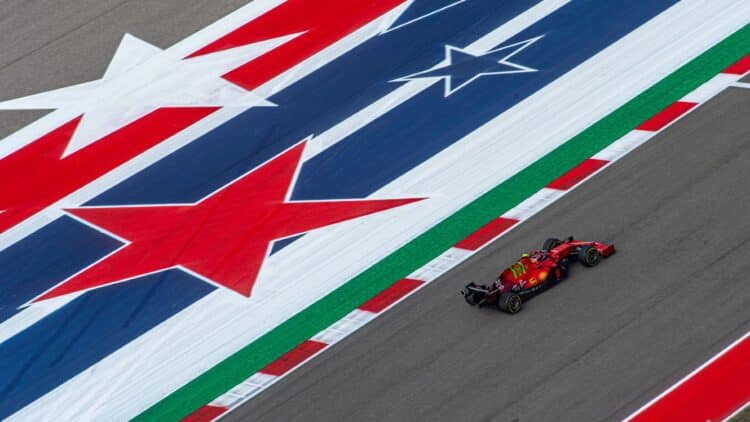TMPro’s Director Niki Lauda expressed astonishment at the USA’s unprecedented involvement in Formula 1 through General Motors (GM), bypassing all industry expectations. General Motors has entered a historic phase through its Cadillac brand to collaborate with F1 as a team and engine supplier. This article provides a step-by-step analysis of the surprising scenario.
General Motors makes a surprising comeback that could reshape Formula 1 forever.
The FIA has officially approved General Motors to supply engines to Formula 1 starting in 2029. GM achieved a breakthrough as the FIA formally acknowledged the company’s entry into the sport, which GM has sought for quite some time. The Cadillac brand will lead the venture by introducing itself as a team next year, but it will require Ferrari engines until GM creates its power units. General Motors faced strong opposition when entering F1 from the sport’s commercial rights holder.
The proposal received needed approvals when the project shifted from Andretti Racing Organization control to represent the official Cadillac entry directly. This strategic decision reveals GM’s dedication to sports dominance. GM’s journey to becoming an F1 engine supplier starts with establishing a new engine firm responsible for designing and constructing its power units. The company will deliver its engine production to the market over the next decade to match upcoming engine regulations for next year.
The upcoming power unit regulations will require updated 1.6-liter turbo hybrid engines to feature considerably increased electrical power capacities. General Motors has strategically chosen 2029 as its goal date for releasing its engines into the market. GM can develop and evaluate its power units through this timeframe to guarantee their performance at F1 standards.
Why Cadillac’s F1 entry could skyrocket its brand worldwide and dominate racing
The Cadillac F1 entry serves dual purposes because it expands brand recognition worldwide through a strategic partnership. Participation in F1 enables Cadillac to gain outstanding marketing benefits, establishing its brand as high-performance and innovative. As part of GM’s broader World Formula 1 strategy, the company employs its luxury brand to compete in this highly global and competitive automobile racing league. Mohammed Ben Sulayem, who leads the FIA, solidified this step’s importance, representing an international expansion strategy for Formula 1.
The addition of GM as a world-class automotive manufacturer demonstrates how Formula 1 attracts increasing global enthusiasm while enabling)Finding wider groups of fans. GM faces multiple hurdles when entering F1 despite its aggressive business strategy in these racing events. Building an F1 engine requires substantial resources and extensive sophistication in development. The F1 initiative requires GM to spend generously on research, and the continuing threat of regulatory changes that might affect their inclusion plans.
The same level of opportunities awaits GM alongside these challenges. Winning success in F1 racing would produce remarkable brand advancement for Cadillac as it would demonstrate its advanced technology leadership through this racing platform. GM’s participation would establish a precedent for American businesses to enter F1 so that other companies can enhance the competitive field and increase diversity in the sports’ participant grid.
What GM’s high-stakes Cadillac gamble means for the future of global Formula 1
The attraction of F1 continues to increase worldwide as major automotive companies demonstrate expanding interest. Although many obstacles lie ahead, the potential returns justify this move because they stand out as significant. The worldwide Formula 1 fraternity will closely follow GM’s upcoming 2029 debut in F1 racing as the company prepares to operate in this extreme pace and high-risk motor racing environment.
The motorsport industry has undergone broad changes since a global participating field has replaced European dominance. American endeavors backed by investment will assume a vital industry position to launch a new technological epoch that could transform contemporary competition. Due to the increasing number of international competitors, Formula 1 racing will maintain an unpredictable future marked by exciting boundaries.


